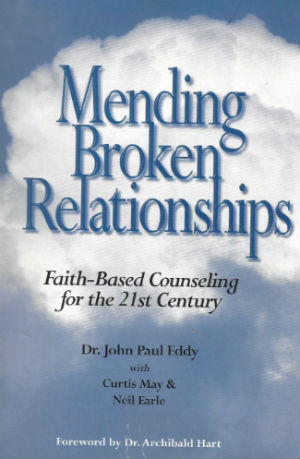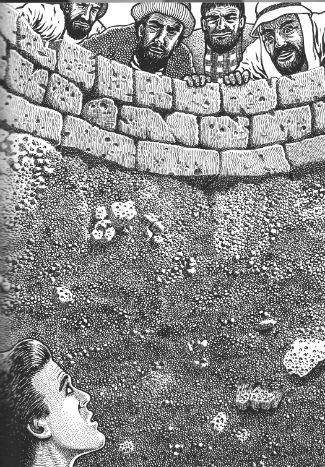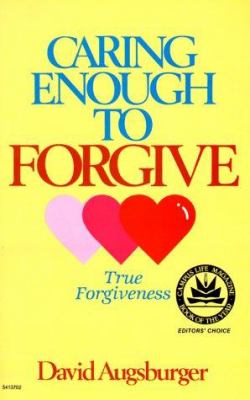Learning Forgiveness, Choosing to Grow
By Neil Earle
 Thousands learn to escape their bondage to hatred and resentment every day.
Thousands learn to escape their bondage to hatred and resentment every day.Many voices in our society are now calling for togetherness and unity. Sometimes however this is harder than it seems. Usually forgiveness has to come first and that can be hard, emotionally demanding work.
While public forms of forgiveness are always to be encouraged, on the personal level real, effective, therapeutic forgiveness shows us the process is never easy. No indeed. It involves a mature, responsible series of choices demanding great courage and stamina. It includes obedience to time-tested principles. If you are a Christian be thankful: you have “superpowers” available that can help move us from resentment to reconciliation. You also have a series of real incidents in the Biblical record that can point the way: Joseph and his brothers, the prophet Hosea forgiving his adulterous wife and, most supremely, innocent Jesus on the cross absolving his tormentors with the words “Father, forgive them; they do not know what they are doing.”
The payoff in applying time-tested strategies of Biblical-level forgiveness is life-changing. Indeed, it is in some ways what life is all about. Relationships are renewed and strengthened in the process – and it usually is a process – as individuals win through to higher levels of personal growth and maturity. It can be transformative, a move from the human level of an eye-for-an-eye relationship to unimagined heights of inner peace and self-mastery.
As the respected teacher David Augsberger wrote: “No human interaction occurs without the possibilities of pain, injury, suffering and alienation. The hurts are always there. The misunderstandings inevitably happen.”
Yes, true forgiveness is difficult but it can be life-changing…and life-saving. Evelyn Burckhardt has seen these principles work as a grief and reconciliation specialist working in Rwanda and Bosnia and other tough areas. She is convinced it can happen as she expounds Biblical examples of forgiveness. She teaches her audiences how Joseph forgave his cruel brothers who sold him into slavery (Genesis 50:15-21), the prophet Hosea his faithless wife (Hosea 3:1), or Jesus his weak, vacillating disciples (Mark 16:14).
 Joseph would have to forgive a family that sold him into slavery.
Joseph would have to forgive a family that sold him into slavery.“False” Forgiveness
It happened, and it can happen for you and me. To get our bearings, let’s first note how there are deceptive counterparts to real forgiveness. Here are some:
The Denial Game. “Problem? What problem?” Denial is ultimately dangerous for brooding anger often builds up into an emotional “slush find” that erupts later as destructive rage or unexplained depression and even violent assaults. No one wants this.
Magic Words. “It doesn’t matter, forget it.” But if another person is still seething with hostility it matters to them. Forgiveness is releasing the Other from an expensive debt of emotional ills they may have inflicted upon us. Look at the “Mea Culpa” stage below for the way out.
Penance. “I can’t tell them how much they’ve upset me – I’ll suffer silently.” But this “martyr complex” is simply peace at any price and usually generates even more anxiety and tension. Children become confused when they see standards violated without preventative actions taken. Once again unresolved human relationships and anger issues often lie at the root of the senseless murder rampages we are seeing too often. Honest confrontation demands courage and stamina but the payoffs are many. Roadblocks get removed and open relationships once again to flow on freely on a higher level.
Door-Mat Thinking. “No matter how much I’m abused I’ll forgive anyway.” Stop! No! This is one-way forgiveness. It has the appearance of Christian behavior but is weak submission at best. It encourages the offender to continue hurting people. A negative spin-off from this one is “If you were a good person you would forgive me.” This is dictatorial forgiveness and it is still One-Way only. The offender is robbed of the opportunity to change.
The Big-Hearted Arthur Syndrome. “I’ll forgive you, you louse.” Again, the offender is reacting superficially with little self-awareness. No lasting change is yet possible. This is skating over the offense and leads to bigger trouble later.

The Better Way
This is tough work isn’t it? But enough of the diagnosis. Let’s move on to a process that can lead to genuine forgiveness and the rebirth of healthy, upbeat life development. But it will take time!
Here we go.
Step 1: MEA CULPA (My Own Guilt) – Humility is a bedrock principle in all human relationships, as the prophet Micah knew. “Walk humbly” before God he taught his people (Micah 6:8). Jesus taught, “Blessed are the poor in spirit” meaning those who feel poor in spirit and are not always demanding their pound of flesh. In all our conflicts we have to first look into the mirror. We have to ask ourselves: Could I be worsening the situation with a hard heart or a negative expectation? Passing this stage often brings us to a higher, more realistic level in the way we see ourselves which inevitably affects the way we see others, as sure as night does day.
We begin to soften.
Step 2: BEYOND RACA. Jesus says never totally despise a person in your own eyes calling him a worthless fool (raca=an Aramaic term of contempt). Be careful, here. There are limits to how much God will tolerate from all of us (Matthew 5:21-26). Beyond “ranting” or “venting” do we see the other person as worthy of our forgiveness and the trouble gently confronting him or her will cause? Jesus revealed a God who judges us on how we treat people in our debt (Matthew 18:23-35).
Step 3: THE EYE OF THE BEHOLDER. Evil is sometimes in the eye of the beholder. Think of the other person’s good points, their positive achievements. This helps move past our hard-heartedness. In bitter election campaigns questioners sometimes ask candidates if there is anything they admire in their opponents. This ends things on a high note. If the principle works there it can work almost anywhere! These three steps help create a fresh perspective in our ongoing journey to forgiveness. We move past the pain. We are making progress.
Step 4: BURNING THE TAPES. “I demand you undo the past.” We know this is impossible but in emotional pain we don’t always think logically. Horrible deeds can’t be undone but might be prevented in the future. We need healthy doses of realism to begin to move past the problem, especially involving major cases of abuse or even low-key drip-drop-drip aggression. Ask the question at this stage: Do I detect any slight movement towards change in the Other? Any signs of self-reflection?

Step 5: GOD IS MY CO-PILOT. As the song says, “How deep is your love?” Love makes no iron-clad demands on the future. Love is always scanning a relationship looking for signs of improvement. The Bible says love casts out fear and that “love believes all things, bears all things.” If you’ve hung in there so far you can confidently approach God’s throne asking for the strength and faith to begin anew if possible. It may not always be possible. After all, even the Biblical heroes Paul and Barnabas had to separate (Acts 16:36-40). The person we are working to forgive could indeed fail again but…in such cases revert to the previous steps. It takes stamina, as we said earlier. One way out is to perhaps do something positive for the other person. One lady trapped in a conflict melted hearts when she sent a nice card saying, “I’m so sorry we are having a problem.” This is a baby step towards rebuilding a relationship, but it worked. You can even thank people for hanging in there with the process.
Step 6: ON EAGLE’S WINGS. Strangely, mysteriously but wonderfully, there is a new depth and richness of feeling we begin to feel inside ourselves when we extend ourselves to the offending party. Sometimes the abuse is impossible to overcome in this life and no one should ever feel “obligated” to forgive what seems like an "unrightable wrong." Relatives especially need to be aware of this in cases of legitimate abuse and the temptation to pressure the offended party. We are only human after all. Yet even the Biblical king Ahab, husband of Jezebel, won God’s respect by taking a “baby step” move towards real regret (1 Kings 21). It is indeed better to light a candle (where possible) than curse the darkness.
Working through a process often changes both debtor and forgiver. Ideally, the relationship has been renewed or at the very least overt hostility has been replaced by moderation and an effort to get beyond the impasse. The ice thaws. Life can go on. Hosea forgave his adulterous wife, Joseph forgave his bloodthirsty brothers, Jesus forgave impetuous Peter because he saw him through the eyes of love and love often entails costly sacrifice. But the payoff is well worth it.
Lights to Steer By
Let’s end with two good ones from God’s Forgiveness Notebook: “Let all bitterness, wrath, anger, clamor and evil speaking be put away from you with all malice. And be kind to one another, tenderhearted, forgiving one another, just as God in Christ has forgiven you (Ephesians 4:31-32, NAV).
And one of the most beautiful sequences in the whole Bible: “For where envy and self-seeking exits, confusion and every evil thing will be there. But…the wisdom that is from above is first pure, then peaceable, gentle, willing to yield, full of mercy and good fruits, without partiality and without hypocrisy. Now the fruit of righteousness is sown in peace by those who make peace” (James 3:16-18).
Blessed are the peacemakers, Jesus taught. Come on, then. Let’s take the challenge. Let’s move towards genuine forgiveness and reap the blessing waiting beyond.